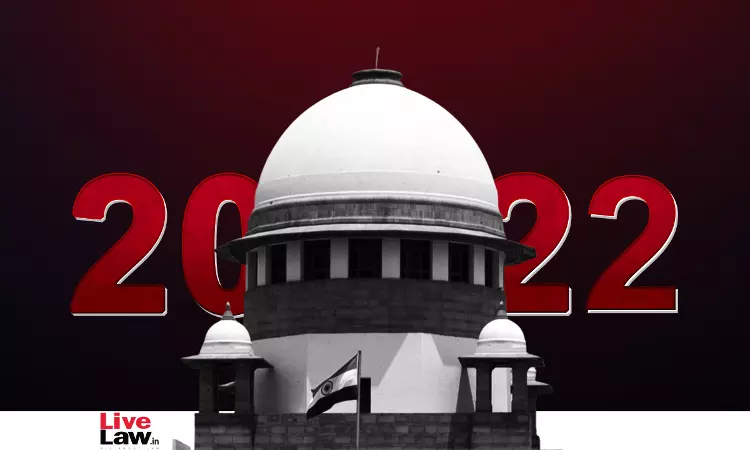Bail & Personal Liberty : Notable Supreme Court Judgments Of 2022
Rintu Mariam Biju
28 Dec 2022 3:05 PM IST

Next Story
28 Dec 2022 3:05 PM IST
Earlier this month, the Chief Justice of the Supreme Court DY Chandrachud remarked that no case is small for Supreme Court and that it has to interfere in matters relating to personal liberty. A detailed look into the orders passed by the Supreme Court regarding personal liberty in the past year would indicate that it did uphold the fundamental right guaranteed under Article 21 of...
